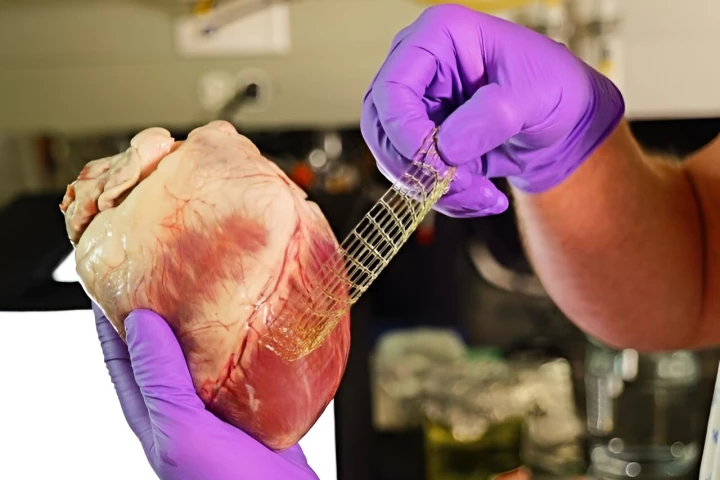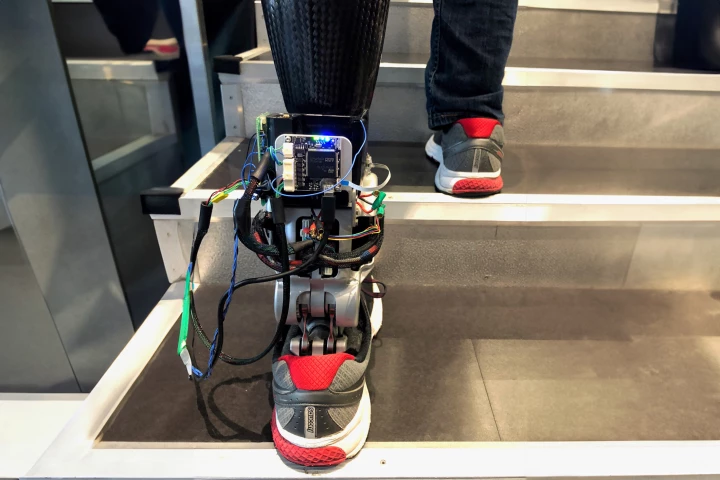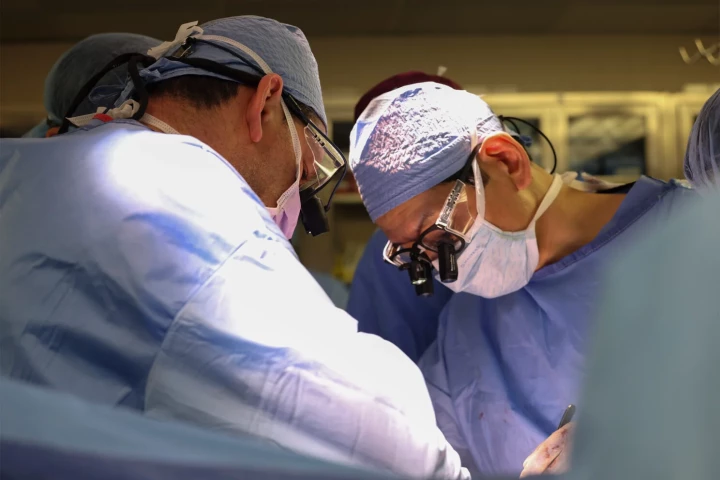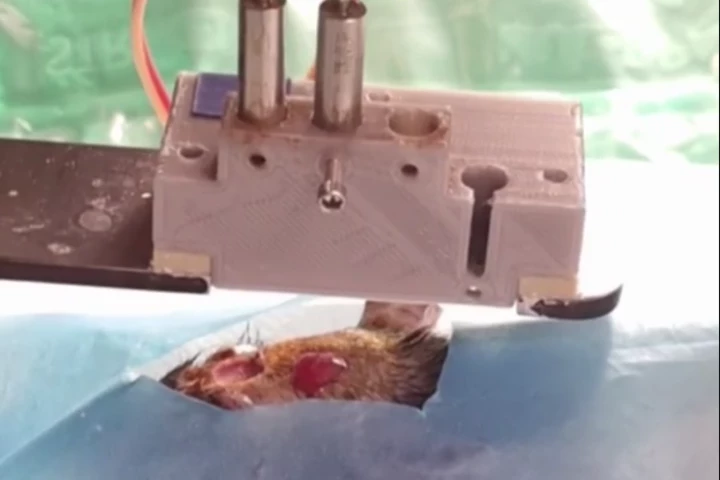Surgery
-
For babies born with a certain heart defect, implantation of a "shunt" is essential to their survival. A new type of shunt can be expanded using light after it's been implanted, potentially eliminating the need for more heart surgeries down the road.
-
A new medical 3D-printing method has been developed that takes its cues from the way tangles of worms interact in nature. The resultant material produced could patch up leaky heart parts or stabilize spinal discs, among other applications.
-
Nightmare fuel? Maybe – but in a historic moment for the dental profession, an AI-controlled autonomous robot has performed an entire procedure on a human patient for the first time, about eight times faster than a human dentist could do it.
-
For the first time, the fully mechanical heart made by BiVACOR, which uses the same technology as high-speed rail lines, has been implanted inside a human being. The feat marks a major step in keeping people alive as they wait for heart transplants.
-
A new surgical technique for below-the-knee amputations retains a person’s ability to receive sensory feedback from remaining muscles. Having a prosthetic leg driven by an amputee’s own nervous system enables them to walk much more naturally, new research has shown.
-
It turns out that blasting people with shockwaves during open-heart surgery is a really good idea. That's what researchers found who used the technique to reactivate heart cells and improve the post-op lives of patients in a groundbreaking study.
-
Sony has shown off its new surgical robot doing some super-precise work sewing up a tiny slit in a corn kernel. It's the first machine of its kind that auto-switches between its different tools, and has successfully been tested in animal surgery.
-
The first successful transplant of a genetically modified pig kidney into a human recipient is still being regarded as a medical milestone and success – even though the recipient, Rick Slayman, suddenly passed away over the weekend.
-
A genetically edited pig kidney has been successfully transplanted into a living patient for the first time. Reports indicate the man is doing well a few weeks on, raising hopes for a wider pool of donated organs in future.
-
A simple little sticker could soon be saving the lives of patients recovering from gastrointestinal surgery. The clever device is designed to detect the presence of leaking digestive fluids sooner than otherwise possible.
-
In a world first, researchers have printed multi-layered, living skin directly onto significant injuries in rats for scar-free skin repair. It's not sci-fi – they're genuinely 3D-printing skin (and possibly hair) right into damaged areas.
-
Six doctors in Nebraska have successfully operated a surgical robot aboard the ISS. This time, the operation was on only rubber bands, but the milestone could have meaning for future missions to Mars or for rural operating rooms here on Earth.
Load More











